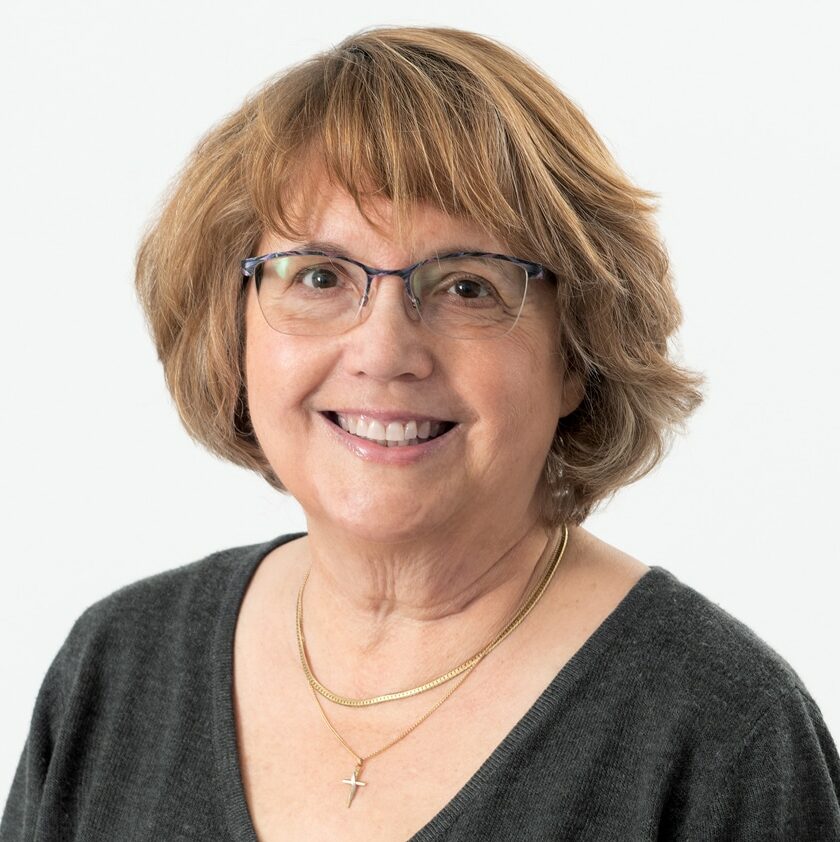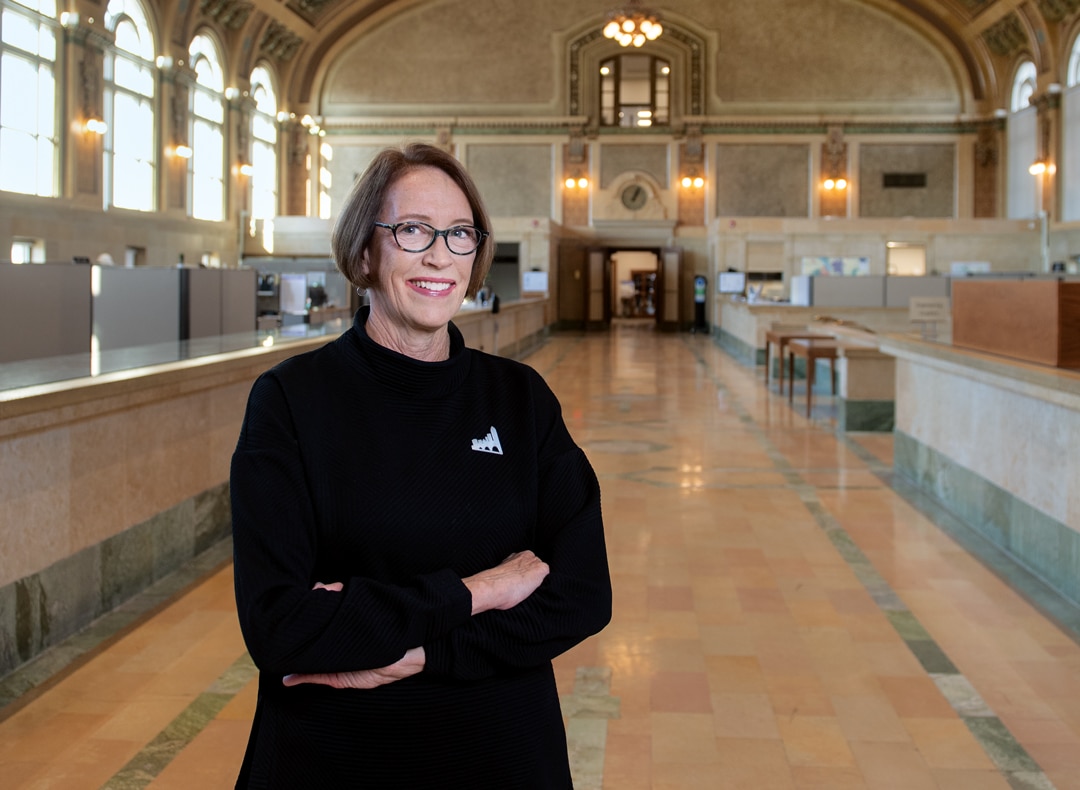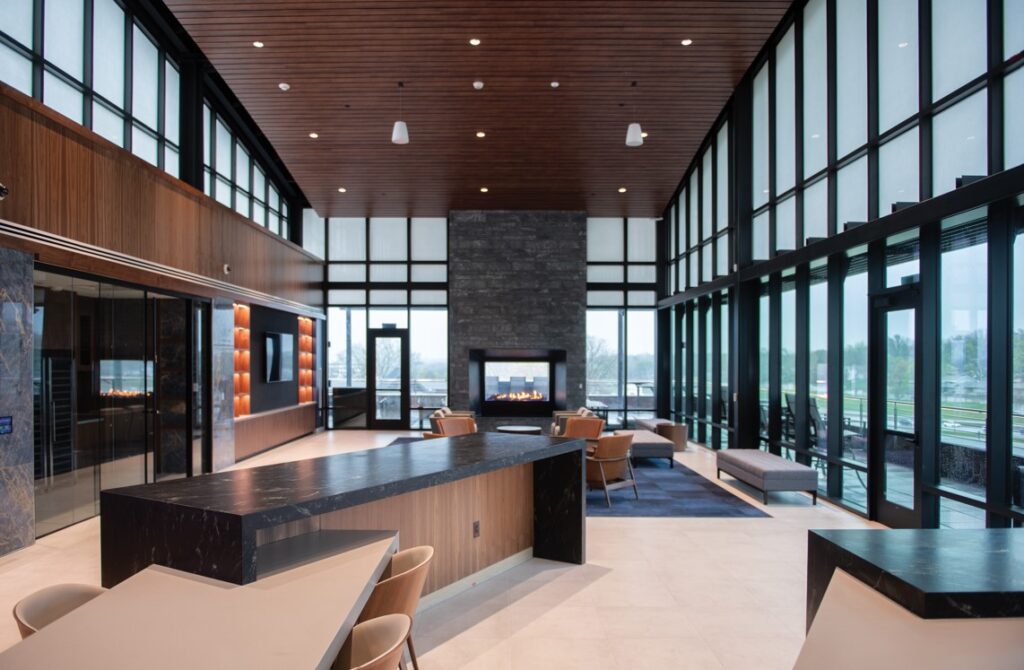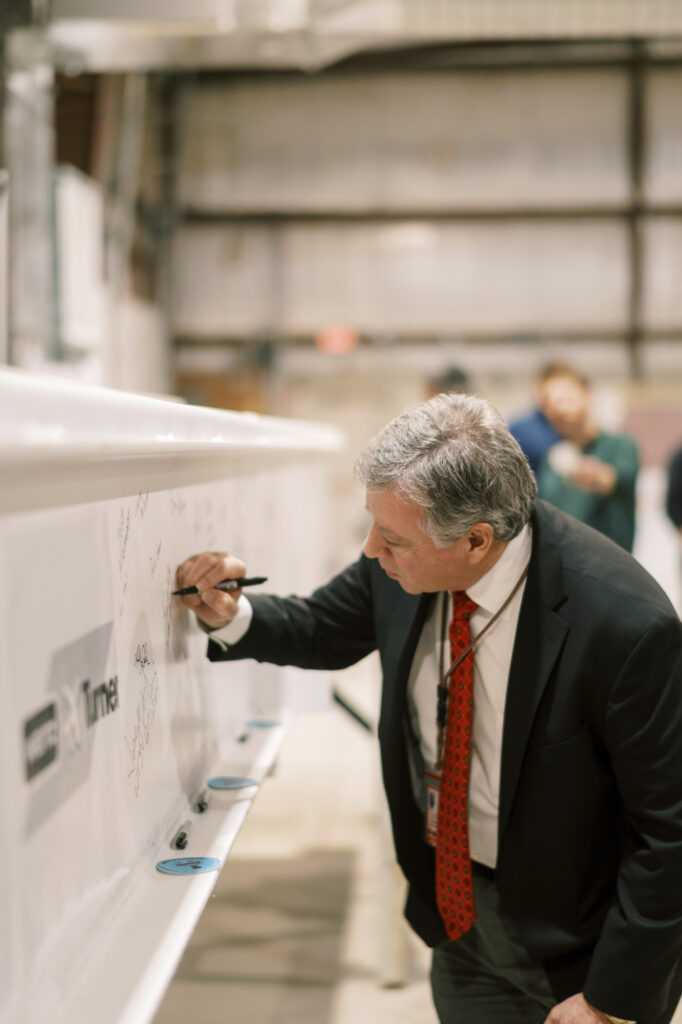Boesen: Economic development a priority

Kathy A. Bolten Jan 12, 2024 | 6:00 am
7 min read time
1,777 wordsBusiness Record Insider, Real Estate and DevelopmentFor over three decades, Connie Boesen had a front-row seat to downtown Des Moines’ transformation as a vibrant Central Iowa retail hub to a business district void of people after 5 p.m.
Boesen, who in November was elected the city’s mayor, wants to return downtown to a hub of activity that regularly draws people and businesses to the city’s core. To do that, the central business district must attract an array of new businesses and more residents, she said.
“With more housing comes more retail,” said Boesen, 72, Des Moines’ first female mayor since its incorporation in 1851. “Then more people follow the additional retail. It just creates a pattern.”
Boesen, who previously was an at-large city council member, assumed the mayor’s position on Jan. 2. She replaced Frank Cownie, who had been mayor since 2004 and opted not to seek re-election.
Boesen has lived in Des Moines most of her life. In the mid-1960s, as a teenager, she shopped at the stores in downtown Des Moines. Beginning in 1969, she was a buyer for the now-defunct Younkers department store, whose headquarters was downtown. She worked for the company for over 30 years.
“There used to be a huge, vibrant downtown,” Boesen said. “Now, you have the East Village for some shopping but really, nothing else.”
At the end of 2023’s third quarter, over 1 million square feet, or 16.2%, of downtown’s office space was vacant, according to a market report by CBRE Inc.
More vacancies are expected with the relocation to West Des Moines of many of Wells Fargo’s downtown employees; the move from leased space by MidAmerican Energy Co. into a downtown office building it acquired; and the move from leased space by federal court officials into a new courthouse.
Prior to the COVID-19 pandemic outbreak in early 2020, downtown buzzed with activity. Restaurants were mostly full during lunchtime. Events and activities drew people to the central business district or kept them there after the workday. The pandemic and its aftermath, however, halted the revival.
While downtown foot traffic has increased in the past year, it still trails pre-pandemic levels. A recent Greater Des Moines Partnership survey showed that workday foot traffic averaged nearly 66% of what it was prior to the pandemic; foot traffic on Friday through Sunday averaged 91% of pre-pandemic levels.
Boesen wants to aggressively recruit more businesses to Des Moines’ central business district, from retail stores and restaurants to office-based businesses. In December, she spoke to the Iowa Commercial Real Estate Association, telling members the city wants to help them bring businesses downtown.
“We have to roll out the red carpet,” Boesen told the Business Record. “I don’t know if all of the [real estate brokers] know what incentives – if they are needed – the city has available. I do know this: We need to make it very clear that we want businesses to locate in downtown Des Moines.”
Boesen said she would like to see more retail businesses downtown as well as more small to large companies “that bring people downtown.” She also would like to see more housing, adding that residences could be built on the unused surfaced parking that rings the western part of downtown.
“There are a lot of parking lots that certain companies don’t need anymore that are blank slates,” Boesen said. “They could be turned into housing. I still think that there is a lot of desire to live downtown, and it’s all ages.”
Boesen acknowledges that it’s unlikely downtown returns to how it was in the 1960s with department and specialty stores lining the streets. But, she said, it is possible to create a different kind of vibrancy in the central business district.
“Just look at East Village,” Boesen said. “It didn’t exist 20 years ago. It took local entrepreneurs that wanted to make a difference and started something there. The same thing can happen [on the west side of downtown]. There are opportunities to do some things differently. We just have to get creative.”
The Business Record recently sat down with Boesen and discussed a range of topics with her. Here are edited excerpts of the interview:
We’ve talked a lot about downtown. How do you get developers into Des Moines’ neighborhoods, similar to what is occurring in Highland Park and Drake?
That’s where I think we need a new strategy on how we go out into those areas to recreate. Some of the strip [retail] centers and other buildings might go back into housing. They are on major corridors. Maybe we do more of the row houses or other types of housing. … Those centers are on mass transit routes. You can only have so much retail today.
What areas of the city need attention?
We’ve talked about the Southwest Ninth corridor for years. It’s an area that needs some work. When I look at the east side, the whole Hubbell Avenue corridor. Also, how do we clean up the stretch of University [Avenue] between the interstate and [Iowa State] Fairgrounds? I think there’s a lot of opportunity there. The new fair manager is very much into the community and wants to be a part of the community. With all of the activities going on at the fairgrounds, there are opportunities to attract other businesses to the surrounding corridors.
You have the title of mayor but you are just one of seven voting council members. How will you work to get support from the rest of the council on things you want to accomplish?
I plan to meet with each individual council person and ask them, ‘What is your priority?’ Then we’ll talk with the city’s economic development [department] to figure out how to marry it all together. I’m a realist: We’ve got to tackle what we can be successful at. Sometimes when you get too many projects going, they are not all well done or you don’t make an impact. Whatever we do, we have to be targeted and we have to make sure we make an impact.
What will your relationship be with the governor and state lawmakers?
We’re going to have an ongoing dialogue. I’ve had one meeting with [Gov. Kim Reynolds], and we will continue dialogue with her. But not only her, but also all of the legislators that impact Des Moines – and even outside of Des Moines – so that they understand what our issues are and how legislation they are thinking of passing will affect us. We all need to work together. We are the capital city. We are the host to many of the legislators and many of the people that come into the state. We want to be good neighbors.
Sometimes we talk about the rural-urban divide. I have said urban and rural Iowa have a lot in common. We both have old infrastructure; we both have a lot of rebuilding and revitalization that we need to do. And in rural Iowa, they are trying to attract more residents and businesses, just like we are in Des Moines. We have much more in common than we do differences. I think that when we work together, we will have a stronger state.
How would you describe Des Moines’ relationship with its suburban neighbors?
I think everybody can work together better.
How do you see Des Moines working with the suburbs?
I’m going to go out and meet with each individual mayor. I’ll be at the table with the [Greater Des Moines] Partnership. We have got to work regionally together. We are too intertwined now. And no one succeeds on their own. Maybe short term. But in the long run, we all need each other.
What specifically needs to be worked on?
I think we need to look at transportation. We need to look at housing. We need to look at the homeless. We have to look at all the social issues. One city cannot do it all. And we need cooperation from all of the communities around us to make sure that everyone is taking care of their citizens and it isn’t left up to one city to take care of everyone. …It all goes back to understanding the need. [One city] can’t say, “We don’t have those people in our community,” because everybody has people who need help, and how do we collectively help people?
When somebody four years from now says, ‘Tell me about Des Moines,’ what do you hope to be able to say that you can’t say now?
I want Des Moines to be a city that people choose to live and work in. I don’t want to hear that “I have to go somewhere else to find the house that I want or the office I need.” I want people to say, “Des Moines is my first choice,” because Des Moines is a great, thriving city for all. And, within each quadrant of our city, we have a diversity of businesses; a diversity of housing stock. We already have a diversity of people.
We can’t assume that on one side of town that [there is only] one type of thing you can build there. We need to make sure that we’re equally balanced within the quadrants. I come from the east side of Des Moines and I know that there’s a certain attitude – and I guarantee you it’s in the other areas of the city, too – that there is only a certain kind of housing we can build; this is the only price we can build. I think that needs to go away.
I see what is being built in other areas. … We need to make sure we give the people of each quadrant of this city equal opportunity.
Connie Boesen
Age: 72
Education: Attended Grand View College and Des Moines Area Community College
Work: Owner, Applishus and Salad Bowl concessions; was a buyer for the former Younkers department store for 33 years; retired from Polk County General Services
Political background: Des Moines mayor, 2024 to present; Des Moines at-large City Council member, 2017-2023; Des Moines school board member, 2003-2017
Community involvement: Treasurer, Invest DSM; member of Bravo Greater Des Moines, Des Moines Arts Festival, Des Moines Area Metropolitan Planning Organization, United Way Education Cabinet and East High Alumni Foundation; and chair of Polk County Early Childhood Partnership
Awards: 2006 Business Record Woman of Influence; 2017 Louise Rosenfield Noun Visionary Woman Award; East Des Moines Chamber of Commerce Citizen of the Year, 2003; East High School Alumni Hall of Fame, 2003; East High School Service to Humanity Award, 2002
Family: Husband, Ted Boesen Jr.; two adult daughters; four adult step-children; 12 grandchildren.

Kathy A. Bolten
Kathy A. Bolten is a senior staff writer at Business Record. She covers real estate and development, workforce development, education, banking and finance, and housing.









